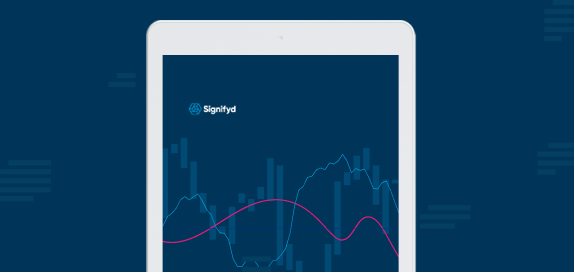When CB Insights named Signifyd to its 2019 AI 100 List in the retail sector on Wednesday, it was another sign of how deeply retail and artificial intelligence are intertwined as merchants transform themselves in order to keep up with increasing consumer expectations.
The list, which data analytics company CB Insights says comprises the 100 most innovative artificial intelligence startups in the world, includes players from healthcare, telecommunications, semiconductor, government, finance, as well as retail. It is a product of an ongoing digital transformation in every corner of every industry.
“We’re pleased to be listed among these visionary innovators,” Signifyd CEO and Co-Founder Raj Ramanand said. “More than that, we’re excited about continuing our work providing retailers around the world with the technology they need to remove the barriers to friction-free buying experiences without having to worry about fraud.”
The power of AI in commerce has been a given for some years now. It has led only somewhat recently to the rise of digitally native retailers — nimble, digital-first merchants who burst into the market with compelling products and a compelling story behind them.
They quickly become household names and continuously operate a step ahead of the competition by building organizations with very few full-time employees and an army of tech providers who automate and scale ecommerce operations that are not core to the retailer’s mission.
Digital natives are driving retail’s transformation
Companies like Warby Parker, Bonobos, Allbirds, Kylie Cosmetics, Casper, Away, Rad Power Bikes, Adore Me, Everlane, Stance and on and on are early examples of the retail wave of the future. Their notoriety and success has accelerated the digital transformation of legacy retailers — retailers who have both understood that they need to change in the face of digital upheaval and who have at times stumbled as they’ve tried to do so.
Digital natives have also inspired a new kind of thinking around the way to succeed at retail in the 21st century. Venture capitalist Mary Meeker laid out the strategy in her 2018 Internet Trends report in a section focused on ecommerce. The industry’s emerging leaders, she noted, are agile operations that build an ecommerce stack comprising eight pillars.
The pillars, including functions like payments, the ecommerce platform, fraud prevention, purchase financing, customer support and finding customers, are highly dependent on AI and allow retailers to scale quickly, while swapping out solutions that don’t work for those that do

Signifyd’s guaranteed fraud protection is a prime example of how modern retail is turning to artificial intelligence. The company serves thousands of customers in more than 100 countries with its model, which combines big data, machine learning and domain expertise to separate legitimate orders from fraudulent ones in milliseconds. The model also includes a guarantee that Signifyd will pay the costs of any approved order that later turns out to be fraudulent.
CB Insights’ AI 100 list is an acknowledgment that consumers have completed their digital transformation and that business across all industries are rapidly catching up with the help of technology pioneers that have become leaders in their respective sectors.
Big momentum expected from the AI 100
“The data we compiled on this year’s nominees, ranging from their customers to their patents to their CB Insights’ Mosaic scores, revealed 100 AI companies that are driving transformation across a number of industries,” CB Insights CEO Anand Sanwal said in announcing the 2019 list. “We expect these companies will see similar levels of momentum and progress in 2019 and are excited to continue to track their progress
He noted that last year’s class followed up the honor in 2018 by raising $4.5 billion in 45 investment deals. Six of the companies achieved valuations of more than $1 billion.
CB Insights selected those honored from among 3,000 companies from around the world. The firm’s research team looks at several factors to predict a company’s momentum and potential, according to CB Insights. The factors include patent activity, the quality of investors, sentiment expressed in news stories, Mosaic scores, market potential, partners and growth.
It is a sterling class by CB Insights measure. As of the end of 2018, the companies on the AI 100 list had raised $9.4 billion in 375 deals, including the $100 million raised by Signifyd in May. Eleven of the companies were valued at more than $1 billion. The companies together were backed by more than 680 investors from 29 countries. And while the bulk of the companies were based in the United States, the companies on the 100 list come from eight different countries. More than that, the list is a sure sign that the influence of artificial intelligence will only continue to grow in retail and across every business sector.








